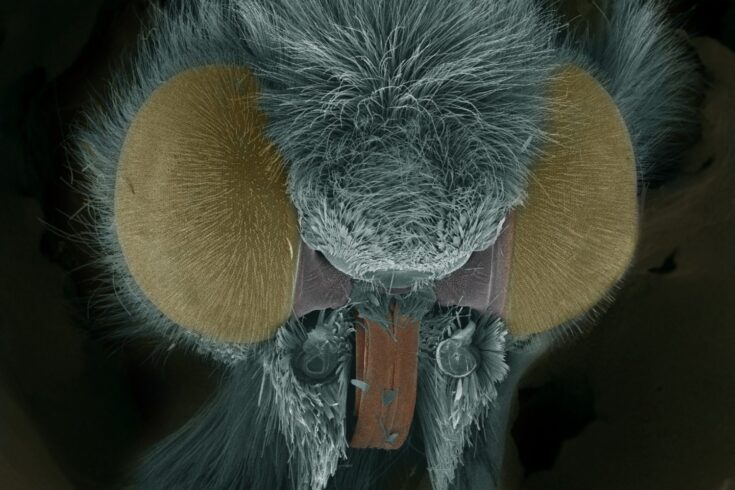The Biotechnology and Biological Sciences Research Council (BBSRC) has announced a new portfolio of strategically important research that will significantly enhance the UK’s capability to deliver world-leading research with socio-economic impact.
This leading-edge research will be supported by £376 million funding from BBSRC over the next five years, which will be led by the following specialist institutes it supports in the UK:
- Earlham Institute
- Institute of Biological, Environmental and Rural Sciences (IBERS)
- John Innes Centre
- The Pirbright Institute
- Quadram Institute
- The Roslin Institute
- Rothamsted Research
The investment comes following a major review of the institute research programmes BBSRC funds and is carried out every five years.
Addressing global challenges
As part of the £376 million funding, BBSRC will support 16 new programmes of bioscience research and innovation that seek to address high-profile national and global challenges, the likes of which include:
- advanced genomics
- crop resilience
- food safety
- food security
- nutrition and health
- preventing and controlling viral disease
- sustainable farming and agriculture
Bolstering capability and connectivity
Professor Melanie Welham, Executive Chair at BBSRC, said:
BBSRC’s strategically supported institutes are a vital component of the national and international bioscience research and innovation ecosystem. As experts in their fields, these world-class research institutes provide the UK with the capability and connectivity needed to ensure the UK remains at the forefront of the bioscience revolution.
The investment BBSRC is making in its strategically supported institutes over the next five years will help deliver novel bio-based solutions to some of the greatest challenges we face as a society.
Bioscience shapes our lives in so many different ways and as the UK’s major public funder of bioscience research and innovation, it is mission critical that BBSRC invests in world-class science that delivers benefits to society as a whole while driving economic growth and prosperity across the UK and beyond.
Leadership in bioscience
Minister of State for Science at the new Department of Science, Innovation and Technology, George Freeman MP, said:
The world is facing a number of major challenges from the climate emergency, food supply security, a growing risk of deadly disease pathogen pandemics, air and water pollution and the urgent need to harness new green energy.
These challenges are complex and interconnected and will require a concerted effort from the scientific community to harness our knowledge of biological systems to address.
This £376m investment for UK biosciences announced today will help build on the UK’s longstanding leadership in bioscience – from plant science, to gut biome and nutrition, new biofuels, disease resistant crops and tropical diseases to help attract and retain the best and brightest scientists from around the world, drive innovation and economic growth through the Bioeconomy and help the UK’s Science Superpower mission to better harness science and technology for global good.
BBSRC’s strategic vision
Aligned with the vision set out in its institute strategy, BBSRC’s long-term investments in specialist institutes and innovation clusters across the UK enable the discovery, development and translation of bio-based solutions to address major global challenges.
Ground-breaking impact
The investment builds on decades of ground-breaking discoveries and new technologies. From vitamin D tomatoes to virtual farms, read more about examples of the leading-edge national and international research delivered by BBSRC’s strategically supported institutes in the BBSRC Impact Showcase.
Further information
BBSRC’s strategically supported institutes
BBSRC is responsible for the long-term investment of substantial public funds in strategically supported research institutes.
As well as providing leadership and expertise in vital areas of research, the eight institutes that BBSRC supports also play a key role in driving the vision and core themes outlined in BBSRC’s institute strategy, namely:
- capability: delivering world-class research with socio-economic impact
- connectivity: forging connections through collaboration, coordination and communication
- culture: beacons of best practice for improving research culture
To ensure all eight institutes continue to make a significant contribution to the bioscience research and innovation system, every five years BBSRC conducts an Institute Assessment Exercise (IAE).
Following the most recent IAE in 2022, BBSRC is investing more than £376 million in its strategically supported institutes over the next five years.
Funding is provided through a series of institute strategic programmes grants as well as through investment in the institutes’ core capabilities.
While seven of BBSRC’s eight strategically supported institutes participated in the IAE 2022, Babraham Institute’s was deferred by one year to enable the appointment of a new institute director. Babraham Institute will participate in a separate, though identical, IAE in 2023.
View our digital brochure to find out more about BBSRC’s strategically supported institutes and the research programmes they are delivering with BBSRC funding.

